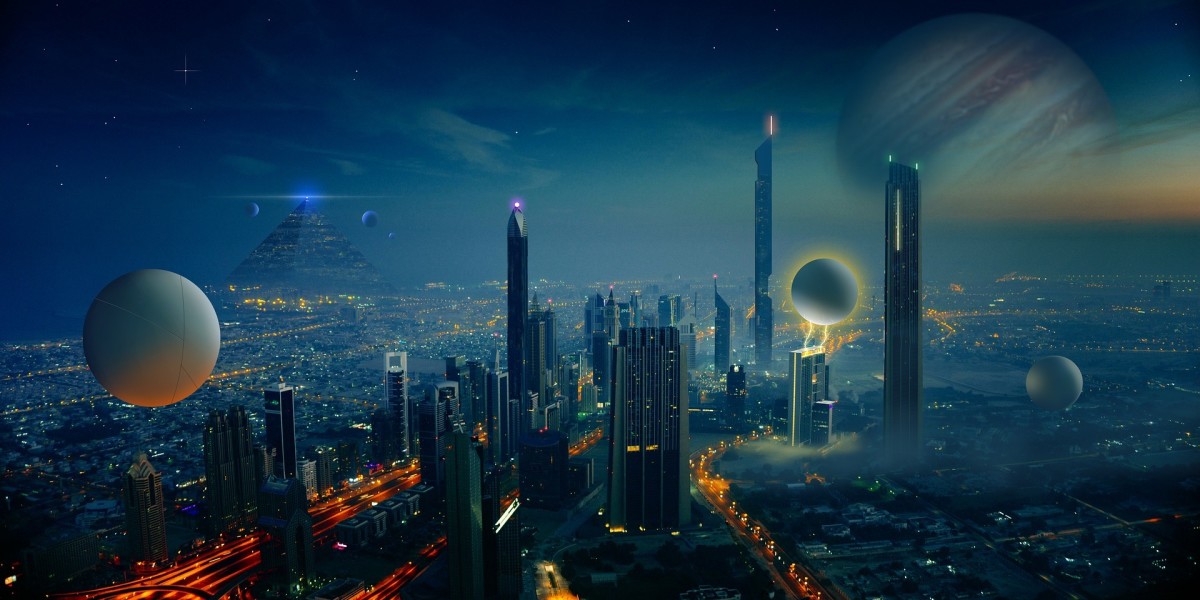The Future of Science Fiction

Look around you. We live in the future. We live in a time, surrounded by technologies that, just one hundred years ago, would have seemed right at home in a (perhaps) less than perfect science fiction world. Think about it: every day we surf the internet on computers capable of delivering everything from the lifelike graphics of the latest videogames to the complete works of Shakespeare, all in a matter of seconds. Every day we carry with us and use cordless cellphones which fit in the palm of our hands, play music and come with a million applications to adapt them into everything from toys to tools, from devices aimed at home improvement to devices capable of being our home theater away from home. Businessmen regularly ply the skies in jets, Virgin Galactic is selling seats for commercial spaceflights, and 3D printing technology is capable of generating everything from beautiful artwork to car parts (and organs that almost work.) People like me work predominantly from home, cruising the oceans upon oceans of information that make up our global village day after day in search of new opportunities and untapped veins of internet gold. It’s a remarkable time, a time of networking that is half utopic, half cyberpunk– in the purest sense, this is the future. Now is science fiction.
So what will science fiction be like in the future? Where is it now and, more importantly, where is it heading? Will it change, diversify, or die out altogether as we push further and further into the future? Let’s take a look.
In old visions of the future, the worlds we were presented with lacked one fundamental thing that we all should have been curious about: science fiction. As a genre of film or literature, portrayals of it are virtually absent in sci-fi. Is it just that we feel unsure enough about the eventual accuracy of the science fiction we’ve already created that we refuse to speculate further (or so wildly) or is it a certain, unspoken agreement that, once we get to a future of starships, transporters and genetic engineering, the idea of science fiction will become so anachronistic that we won’t look ahead in the same way that we do now?
A couple of things could happen. One possibility is that science fiction could diversify and refocus itself through the eyes of bygone eras. We already see this trend taking flight in the form of retro-sub-genres (the “-punks”) like Steampunk, Dieselpunk and Tribalpunk and as new decades become old and passee, we may see new and emerging sub-genres which would only be joked about today (like Hippiepunk and Discopunk.) An interesting example of this is the sub-genre of Spacepunk, an emerging modern hybrid born of retro-futurism (which is essentially the way the world believed the post-millennial future would look from about the 50's until almost the early 80's.) Spacepunk only exists as a sub-genre because of the fact that such a huge gap has appeared between the future of today and the future of the fifties that retro-futurism has become almost its own era of human development, a psychological epoch still readily accessible through popular media.




Another possibility that has been voiced by other science fiction writers in the past several decades is that science-fiction could go the way of the dinosaur, that it might even die out as a genre entirely. As the speed of information dissemination and reception increases on a global level, effectively unifying the minds of the world in exciting ways that allow for a rate of technological growth unparalleled in known human history, it perhaps isn’t wholly unreasonable to assume that, at some point in the not so distant future, writers will be unable to keep up with the speed of technological advance, meaning many of even the furthest-seeing contemporary visionaries would find their works out of date before they were even completed. Proponents of the technological Singularity, a transition point in future human development where everything is instantly achievable and machines are doing all the work (instantaneously, I might add) believe that we are already on the rising slope to that point, and should we reach it, the human mind could find itself unable to dream further than the realities machines will be creating. Should such a point exist, how soon are we likely to reach it? Soon. Estimates put it as soon as ten years and as far out as fifty, so if it is going to happen, it is sure to happen in our lifetimes. On some levels, science is already becoming difficult to keep up with and an incredible amount of research is already becoming automated. Machines that test, analyze and seek out combinations and reactions throughout the biotech industry are old hat, and as the accumulation of information reaches critical mass, technological advancements will become as simple as machines piecing together puzzle pieces and producing solid research faster than the human mind can think.
But coming back to the question of whether science fiction will go extinct or not, consider this: literature is full of genres which have had to adapt with the changing times, but none, not fantasy, not spiritual fiction and not biblical stories (or any other genres for that matter) have ever become extinct. They have adapted. How will they adapt? Well, that brings us back to the examples of emerging retro-adaptation (‘punking and the -punk sub-genres,) but it doesn’t leave us there. Another possible direction science fiction could take in adapting to societal and consumer pressures is that it could simply leave the notions of genre behind entirely. In a sense, it could become so accepted as to utterly disappear.
As an author involved in (and avidly monitoring) the growing acceptance of the surreal and the irreal in the mainstream media (allowing for previously too-wild combinations like the Weird Western Cowboys and Aliens to surface,) I would not be at all surprised if the level of acceptance of anachronistic elements within a singular setting or storyline could ultimately blur all of the disparate genres together into an eventual inter-genre mish-mash which defies categorization completely. If this happens, we may see a future where all of the diversity which we have projected into our fiction, creating hundreds of genres and subgenres will reach a sort of critical mass, become passee, and yield to two simple commercial categories– Fiction and Non-Fiction. The only thing that I can see keeping fiction categorization from going in that direction entirely is the fact that people identify with certain individual aesthetics, and in order to recommend similar products to consumers, businesses need categories, the more specific, the better.
So what will ultimately happen to science fiction in the rapidly changing technofront of the decades to come? Only time can truly tell, but I think the odds are in the genre’s favor, and though the definition of what science-fiction actually is may change, the fundamental spirit that made the genre so great and inspired countless pioneers of technology will remain, strong and vibrant as ever.







